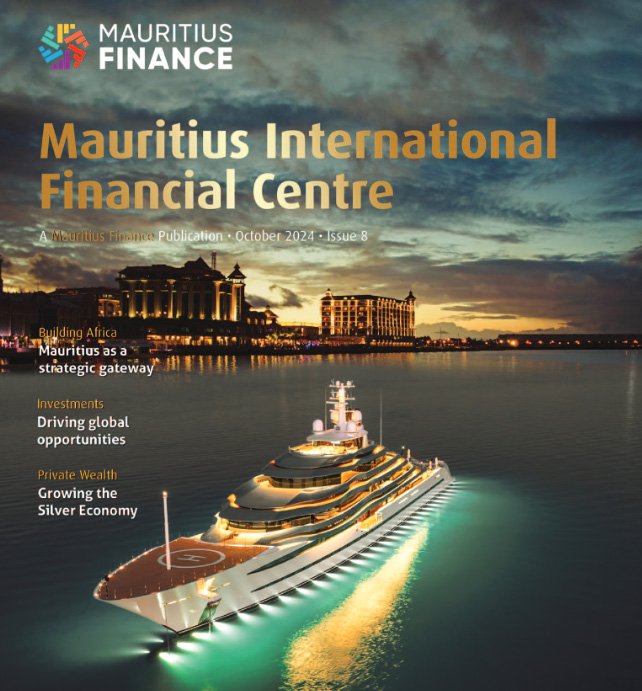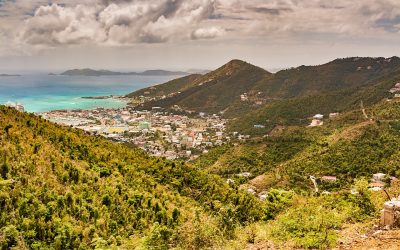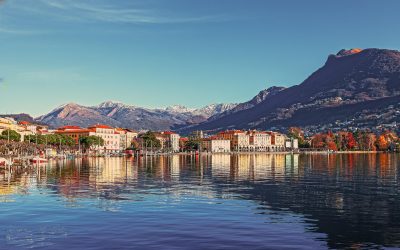BUILDING AFRICA
Mauritius – the strategic gateway and finance centre for Africa
With Africa’s growth presenting huge investment opportunities for foreign investors, Nico van Zyl of TrustQore Group dives deep into the pivotal role that Mauritius can play by acting as a stable platform that mitigates the risks inherent in forays into the emerging continent.
In recent decades, a significant portion of Africa’s business has been driven by foreign investment. Mauritius is well placed to play a crucial role in the continent’s future development.
Africa is home to some of the world’s fastest growing economies. According to a recent analysis by Statista, every country on the continent, except Sudan, should experience positive GDP growth this year. Furthermore, more than half of these economies are projected to see growth rates exceeding 5%.
Foreign investment in Africa
To elaborate, the continent’s expanding middle class, rapid urban development and abundant natural resources are key drivers of this growth. Taken together, they present huge investment opportunities for foreign investors.
Beyond exploiting the continent’s vast natural resources, investment opportunities in Africa include the development of crucial sectors such as infras-tructure, manufacturing, agriculture and technology.
A key element of sustainable business success is the assurance of a stable platform for inward investment and the ability to realise profits when the time comes to exit. This is where Mauritius plays a pivotal role.
Inward investment into Africa – opportunity and risks
International investors and advisers should consider several factors when considering entry into the African market. This process should be coupled with an honest assessment of the challenges and business risks that may arise. Establishing a structure in Mauritius can aid in managing, and, where possible, mitigating these risks.
Positive factors include the increasing number of economic reforms seen in many African states in recent years leading to greater political stability. Improving regulatory frameworks and investment incentives – including special economic zones – are increasingly attractive.
Mauritius is also an early adopter of African trade agreements, including the Africa Free Trade Zone and, more recently, the African Continental Free Trade Area (AfCFTA) which, with over fifty states, forms the world’s largest free trade area (by number of countries) after the World Trade Organization.
Perhaps more than any other continent, Africa presents tangible risks to investors. Despite significant political advances and enhanced infrastructure in many regions, these improvements are not universal. Additionally, corruption and legal hurdles can still pose significant deterrents for international investors.
Mauritius-based investment funds and holding companies benefit from its stable economic environment
Despite these risks, the prospects for international investment in Africa are promising and expected to grow across large parts of the continent. In countries such as South Africa and Kenya, sustainable growth has been observed in sectors such as banking and mobile technology which are increasingly being integrated. Digital payments have become far easier thanks to the burgeoning FinTech sector in several key African states. Similarly, renewable energy projects are coming online, leading to better outcomes for all involved.
Mauritius – Gateway to Africa
Mauritius offers unparalleled connectivity to the continent, making it an ideal gateway for foreign investment into Africa. The island’s strategic location and robust financial sector serve as an excellent conduit for investments into the diverse economies across the continent. Mauritius-based investment funds and holding companies benefit from its stable economic environment and preferential access to African markets.
Over the years, Mauritius has earned a well-deserved reputation as a world-class financial centre, which is particularly significant when structuring corporate investments into Africa. By leveraging its robust financial infrastructure, political stability, and well-developed regulatory environment, Mauritius attracts global investors seeking to tap into Africa’s burgeoning markets.
The provision of first-class banking services is crucial for international investors. The Mauritian banking sector comprises numerous local banks and no less than a dozen foreign institutions, most of which are subsidiaries of overseas parents. All banks in the country are licenced by the Bank of Mauritius, offering international investors a comprehensive range of services that are second to none. Local banks and credit finance institutions offer numerous financing options for African corporate projects, further bolstering Mauritius’ reputation as the preferred jurisdiction for business opportunities in Africa.
Mauritius has entered into an extensive network of double taxation avoidance agreements (DTAAs) and investment agreements. According to the Mauritius Revenue Authority, 46 DTAAs have been concluded and several more treaties are under negotiation of which a large proportion are with African countries. The treaties and agreements significantly reduce the risks associated with cross-border investments, particularly by mitigating potential double taxation.
Mauritius adheres to international standards and best practices wherever possible. The Financial Services Commission (FSC) of Mauritius ensures that the business services sector is well-regulated and transparent, instilling greater confidence among international investors and their advisers. Further enhancing its credibility, the jurisdiction fully complies with the Organisation for Economic Co-operation and Development (OECD) guidelines on tax transparency and information exchange.
Mauritius places significant importance on the adoption of innovation within its financial services sector. The emergence of FinTech companies and the rapid development of blockchain technology have positioned it as a regional leader. Moreover, Mauritius strives to maintain a business-friendly environment by avoiding unnecessary bureaucratic hurdles. For example, the process of establishing a company is both streamlined and efficient. This extends to the financial services sector, where a pool of multi-skilled, hugely experienced professionals and advanced infrastructure effectively supports the needs of international businesses.
Mauritius: Standing tall as an investment gateway to Africa
Mauritius stands out as a premier strategic financial centre, designed to ensure sustainable inward corporate investment across Africa. Its favourable regulatory environment, extensive network of treaties, ease of doing business, and innovative financial services sector ensure that Mauritius remains a highly attractive destination for global investors and advisers.
By establishing an international business structure in Mauritius, companies benefit from robust legislation, reliable infrastructure and experienced staff skilled at navigating the challenges of entering African markets. Together, these factors enable investors to capitalise on the continent’s immense growth potential, in a safe, sustainable and profitable manner.
Click on the link to view the Magazine: https://shorturl.at/TznCI







